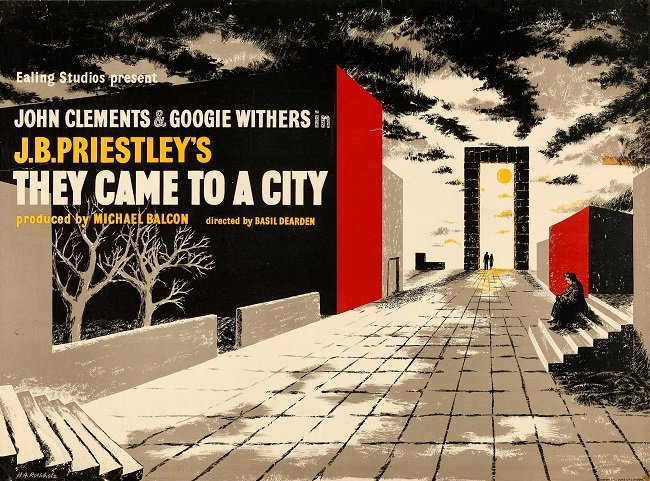The Legend of 1900 (La leggenda del pianista sull'oceano) (1998)
I first watched La Leggenda del pianista sull'oceano (released in US as The Legend of 1900) on the recommendation of a friend who was very enthusiastic about it. I must admit that I was profoundly moved at the time, in that way that only a thoroughly good film can do. I’d almost forgotten how powerful quality cinema can be. I feel justified in my assertion that film may be the greatest art form of the last and current century. Having watched the film again recently, this time on Blu-ray, I was again deeply impressed by the scope of the film and its timeless themes. The high-definition transfer makes the most of the film’s audio-visual excesses. The Legend of 1900 is a beautiful piece of cinema with a striking production design, rich cinematography and a marvellous score by the great Ennio Morricone. Tim Roth is utterly convincing in the lead role and excels in conveying the quirky foibles of the lead character.
On the first day of the twentieth century, an abandoned child is discovered in the state room of the luxury liner Virginian. The Stoker (Bill Nunn) who discovers the child, names him 1900 or more accurately Danny Boodmann T.D. Lemon Nineteen-Hundred. Raised within the confines of the ship and never stepping foot on land, 1900 soon develops an ear for music and displays signs of being a child prodigy. It is implied that living among the multi-cultural crew and the rhythm of the engines has somehow shaped his abilities. As 1900 (Tim Roth) reaches adulthood, he becomes an integral part of the ships orchestra, with his sublime talents proving quite a hit with the first-class passengers. But it is with those in steerage that he finds his greatest inspiration. Using his talents to read a person by their look and manner and then to interpret that into music.
Directed by Giuseppe Tornatore (Cinema Paradiso) and based on a dramatic monologue by Italian novelist Alessandro Baricco, The Legend Of 1900 is a beautifully crafted fable and audio-visual metaphor. The sets designs and especially the beautiful cinematography by Lajos Koltai are a delight, reflecting the decadence and excess of sea travel at the time. The film embodies that visual creativity that is so integral to Italian cinema; actors are often cast primarily for the uniqueness of their faces. Polished surfaces reflect the opulent surroundings, yet distort the images, lending a subtle subtext to the dramatic themes. One standout scene sees 1900 playing a Grand Piano with the breaks off, as the ship is tossed in a storm. The instrument glides around the dance floor in the main state room, to the accompanying music. It’s a beautiful vignette and a clever metaphor for the wealthy elites of Europe pursuing their elegant lifestyle, while the sea of politics rages around them as they race headlong towards disaster.
However, visuals aside, it is the films musical score and the way that it is linked to the storyline, which stands out the most. Two of the most powerful scenes centre on how 1900 conveys his emotions through the piano. An apocryphal piano duel between 1900 and the equally legendary Jelly Roll Morton (the self-proclaimed creator of modern Jazz) showcases some incredible musical interpretations combined with innovative camera work. The music played are all genuine period pieces that push technical and artistic performance to its limits. The other scene takes place as 1900 makes his first and only audio recording. While improvising a piece at the piano, he sees a young girl through the porthole. His feelings shape the piece as he creates it, reflecting her beauty, naivety and innocence. This piece, Playing Love, composed by Ennio Morricone is sublime and one of his finest works. The scene is possibly one of the most genuinely moving pieces of cinema committed to film.
The Legend of 1900 suffers slightly through being an Italian film, with an international cast, shot in multiple languages. A lot of the dialogue was subsequently added in post-production by the original actors and voice artists. It was the director’s intention to try and reach a wider audience by not shooting in Italian. Sadly, the dubbing is noticeable at times and a minor distraction. Furthermore, the US distributors as usual failed to see anything beyond the bottom line and subsequently, removed 40 minutes from the films 160-minute running time. This shorter version is inferior to the director’s cut. Also, some of the films digital effects are not quite as polished as they could be, but they do not spoil the overall film. Giuseppe Tornatore also walks a tight rope with the use of sentimentality and dramatic pathos but succeeds where other directors would have failed. The key theme of a man of great talent and ability surrendering his life to the restrictions he has chosen for himself, is very tragic. 1900's world has clearly defined limits that he won’t venture beyond. Land represents for him a place without boundaries, where people can get lost.
“Take the piano. Keys begin, keys end. You know there are 88 of them. Nobody can tell you any different. They are not infinite. You're infinite... And on those keys, the music that you can make... is infinite. I like that. That I can live by. You rolled out in front of me a keyboard of millions of keys, millions and billions of keys that never end. And that's the truth Max, that they never end. That keyboard is infinite... and if that keyboard is infinite, then on that keyboard there is no music you can play. You're sitting on the wrong bench... That is God's piano”.
If you enjoy quality cinema and despair at its absence in the current climate then seek out The Legend Of 1900, especially the full 160-minute Italian version under its original title La Leggenda Del Pianista Sull'oceano. It is a thought provoking piece of cinema, that stays with you long after the film has finished. 1900 himself is an enigma which is never fully explained, although to do so would be to the films detriment. The story focuses on many themes such as loss and regret, but at its heart is the concept that it is ourselves that ultimately define the boundaries of our own life. Change is there, if we choose it, however, it always comes with a price. And if such philosophical themes do not appeal to you, then The Legend Of 1900 has a wealth of outstanding musical performances and set pieces to offer. Although the film ultimately belongs to Roth, whose off-kilter and deliberately vague performance underpins the narrative, just like that of Peter Sellers' in Being There.




























